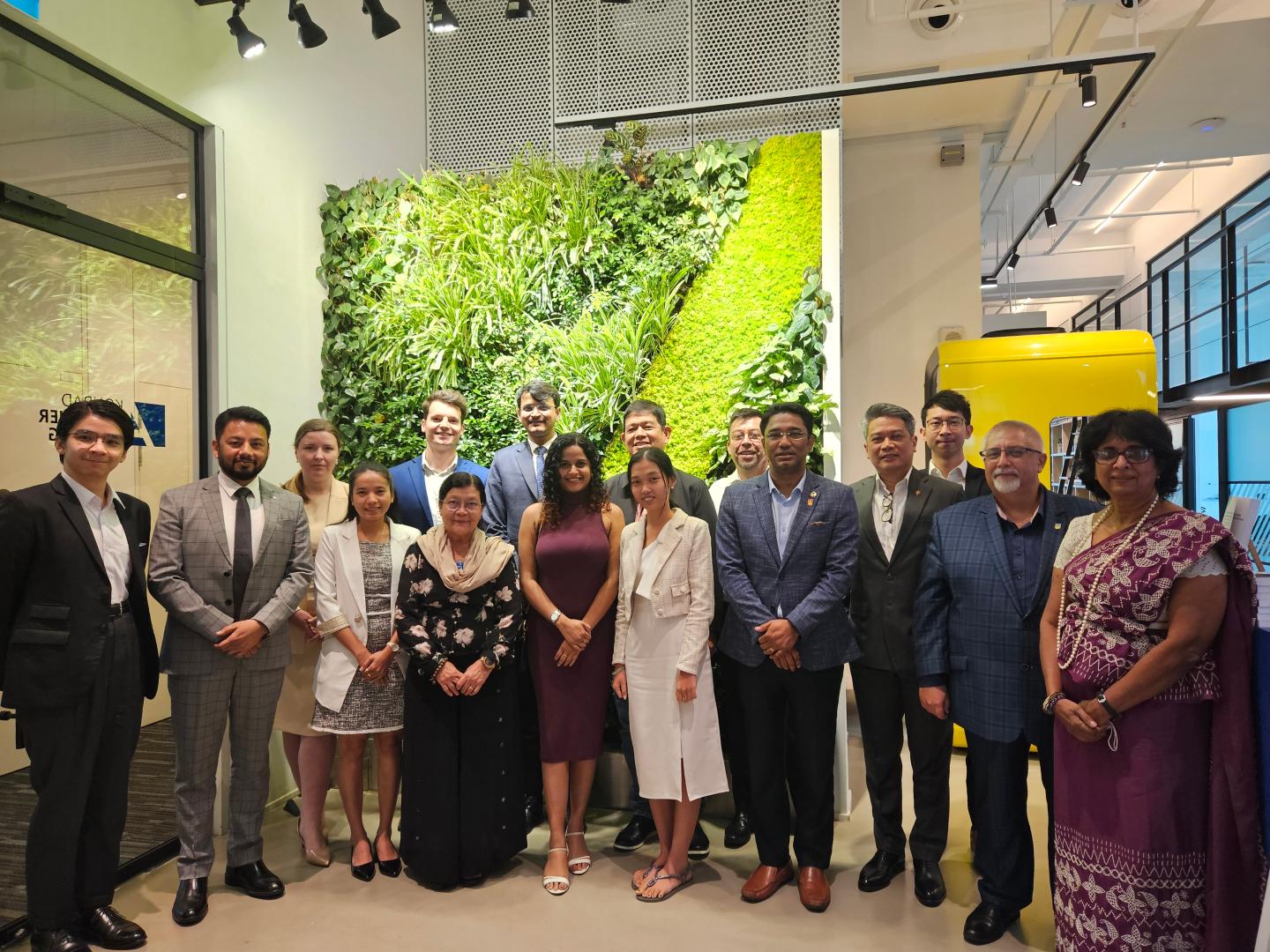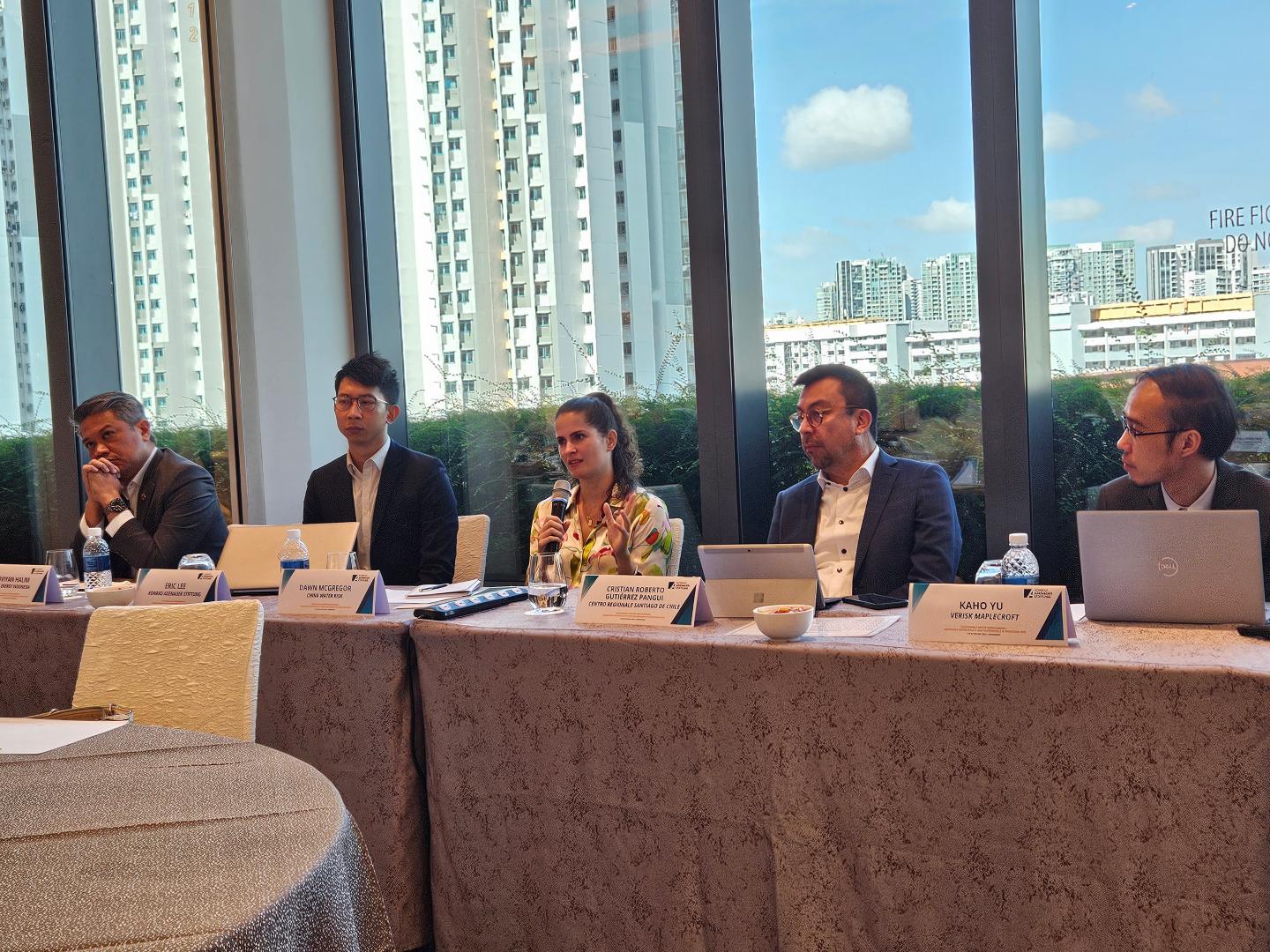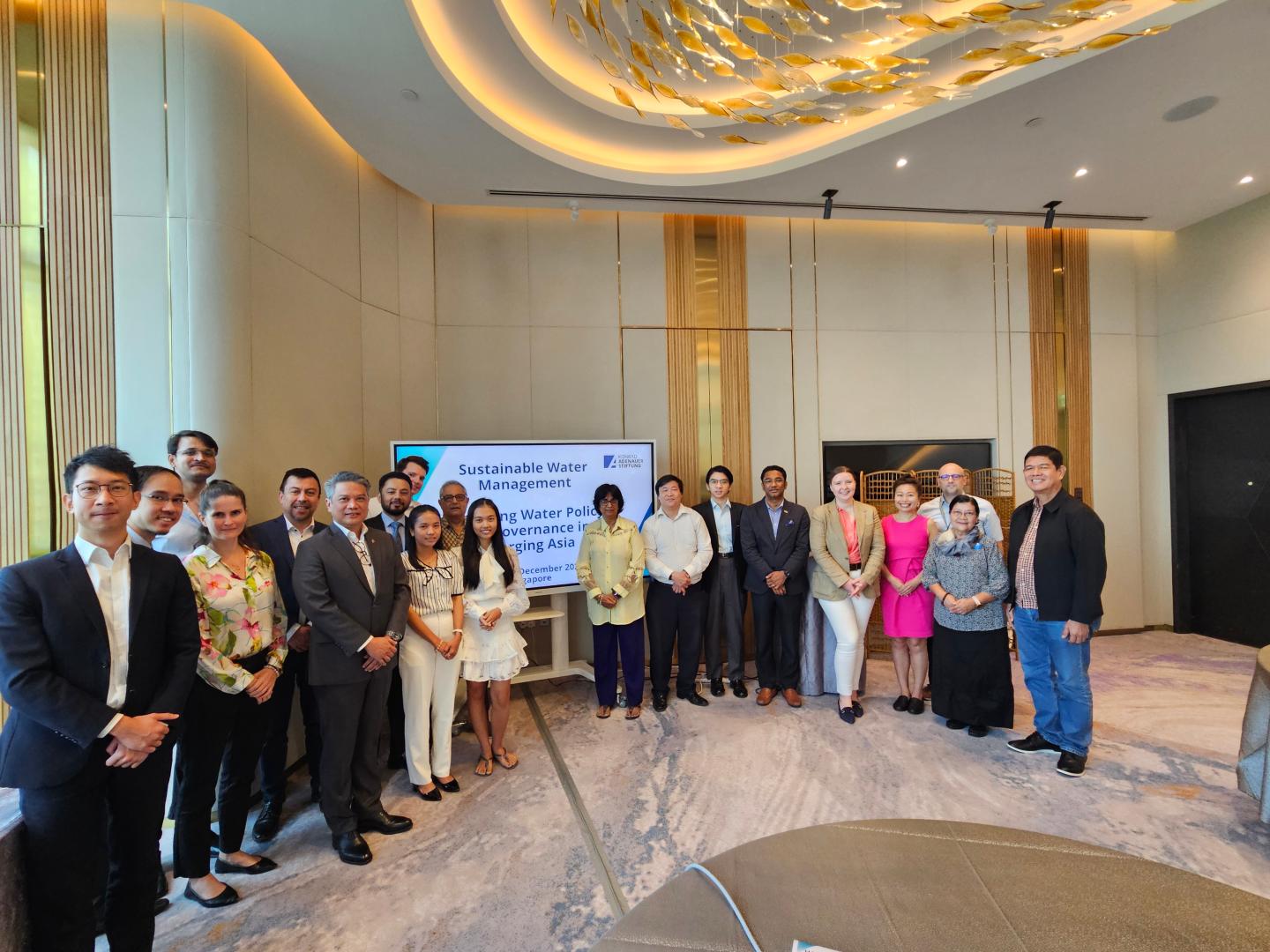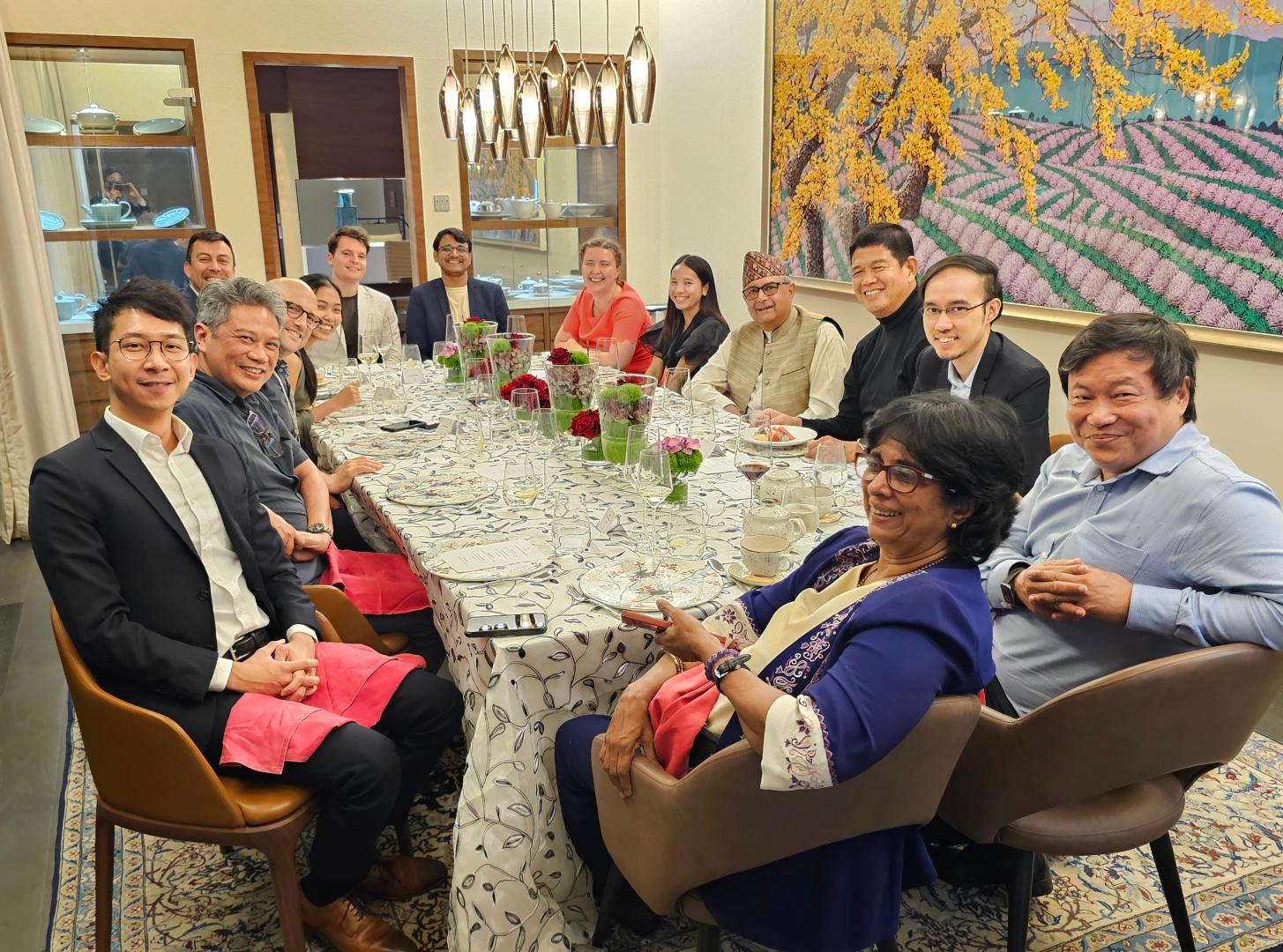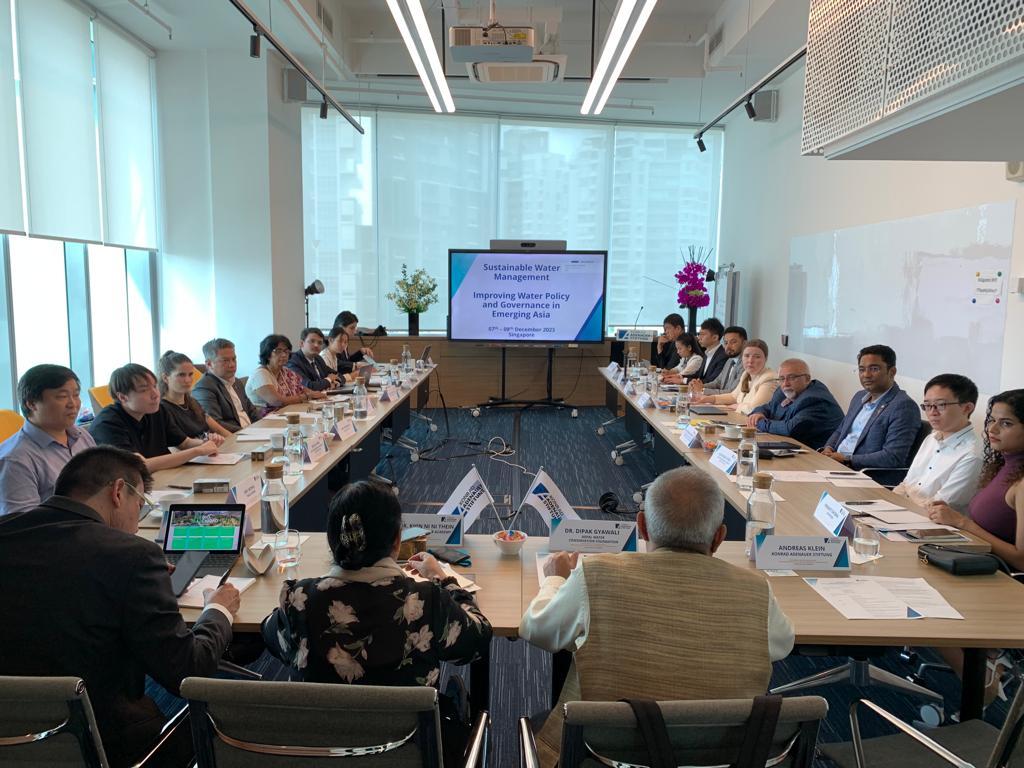Asked if the next crisis was going to be a water crisis, Hon. Dipak Gyawali, former Minister of Water Resource of Nepal emphasised that is already a large crisis. Panel I subsequently delved into the factors that elevated water as highly demanded and popular input (re)source. With changing weather and rainfall patterns and depleting groundwater resources in parts due to climate-change, the necessity of National Water Strategies and Policies have become all the more important. Perspectives were shared from India (Dr. Anshuman Jaiswal), Thailand (Prof. Dr. Sangam Shrestha), Sri Lanka (Kusum Athukorala) and Nepal (Dipak Gyawali).
A change of perception not to take water as an affluent, always readily available resource has undoubtedly emerged among citizens and governments in Emerging Asia. In order to alleviate water pressure, especially in the growing metropolitan areas of Southeast Asia, the concept of “water recycling” and “wastewater management” has gained increasing attention. Public-private investment opportunities and local projects have been presented in the case of Santiago de Chile (Christian Gutierre), Eastern Europe (Hanna Montavon), Jakarta (Noviyan Halim) and Bangkok (Sangam Shrestha). Dr. Anshuman further presented the joint EU-Indo initiative on wastewater management and how multilateral financing (ADB, TeamEurope) can ideally contribute to an improvement in water quality in India and beyond.
With the intensification of agriculture and industrialisation, a lack of improved wastewater treatment and lack of financial resources, insufficient water management poses not only a major issue within countries but rather raises the importance of a Joint River Water Governance as in the case of Mekong. Sand Mining aggravates to the problem for riparian states, as Kusum Athukorala has pointed out. Mani Jha, Senior Research Associate, World Resources Institute introduced some positive learnings from transboundary water management as for the river Rhine. Dipak Gyawali concluded that Germany “should advertise the success story of the Rhine more broadly”.
Day II started with a workshop on “Water in the context of the energy world of tomorrow: Assessing the Water-Energy Nexus for the Clean Energy Transition”. The Water-Energy-Nexus is key to explore for a successful clean energy transition. Although the need for energy transitions here is widely recognized, the role of water in those transitions (beyond hydropower!) needs more attention. It is though becoming clear that water as a resource will play a decisive role in the climate-neutral energy system of the future, the speakers agreed. The Panel concluded that the interdependency of water and energy is set to intensify in the coming years, with significant implications for both energy and water security.
Afterwards, the participants went to Marina Barrage and took part in a Guided Tour through the Singapore Sustainably Gallery. They visited the Marina Barrage dam that creates a freshwater reservoir and serves to control flood and supply water. Adding to the findings and insights of the previous days, the tour highlighted Singapore’s successful 4-Taps-Policy which comprises water from local catchment, imported water, high-grade reclaimed (wastewater management) water known as NEWater, and desalinated water.
KAS PDA and KAS Recap would like to thank all participants and speakers for the highly engaging and constructive dialogues in Singapore!



